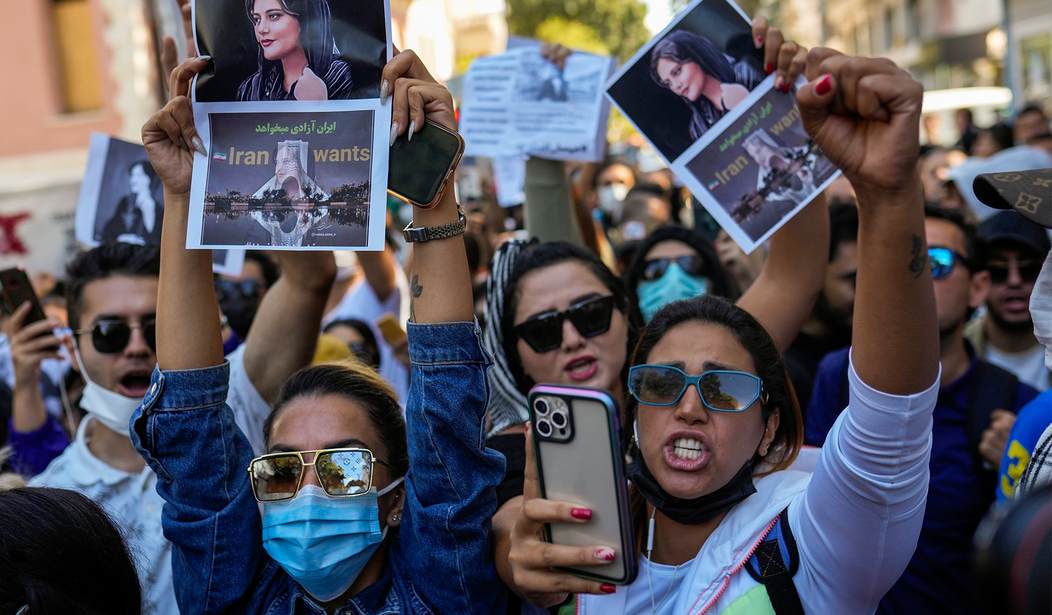As the situation in Iran continues to be in a state of flux, the international community must carefully consider its approach to the country's political future. For decades, Western governments have based their policies toward Iran on the assumption that the existing theocratic dictatorship holds an unbreakable grip on power. However, the nationwide uprising that began in September has challenged this narrative and has presented an opportunity for policymakers and analysts to re-evaluate their understanding of the Iranian people.
As someone who has been passionate about human rights throughout my career, I have taken an interest in the anti-regime activists in Iran and have listened to their voices. I understand the scope and focus of popular dissent and have realized the major shortcoming of the current narrative. It almost entirely excludes the Iranian people from discussions about the correct policies for dealing with the regime. This flaw has resulted in deeply flawed Western foreign policies in this area for a very long time.
To improve our comprehension of the Iranian situation, we must overcome obstacles to better understanding. One such obstacle is the presence of Reza Pahlavi, the son of the deposed Shah of Iran, who has been inserting himself into the discussions surrounding the uprising and its prospects. He has even appeared at think tanks and international conferences and visited Israel to promote the idea that relations across the region would be improved if he were to reclaim his father's throne.
However, Iranian regime officials and state propaganda outlets are only too willing to embrace a narrative that portrays Pahlavi as their chief adversary. The mullahs recognize that as long as the international community positions Pahlavi as a serious voice, the Iranian people will not take its expressions of support seriously.
It is important to note that while the Iranian people have suffered under the theocratic dictatorship, it has only been the continuation of a pattern established by Mohammad Reza Shah, Reza Pahlavi's father. In 1975, he officially declared Iran to be a one-party system while tens of thousands of people were already being held as political prisoners, and countless others were facing public violence and torture at the hands of his secret police, SAVAK.
Recommended
In the same year, Amnesty International described Iran under the Shah as having "no valid system of civilian courts and a history of torture which is beyond belief." The Pahlavi dynasty also helped establish Iran's reputation as the country with the world's highest rate of executions per capita, a reputation that has only been exacerbated under the mullahs' regime.
The Iranian people recognize this and reject both the clerical regime and the dictatorial monarchy that it replaced in 1979. This sentiment has been expressed clearly in some of the defining slogans of the uprising that began immediately after the killing of Masha Amini by "morality police" units in Tehran. Slogans like "death to the dictator" communicate the demand for a complete change of government. Meanwhile, slogans like "down with oppressor, be it the Shah or Khamenei" emphasize that the people's rejection of the current system does not allow for a return of its predecessor.
"Resistance Units," which have been promoting this sentiment since even before the latest uprising began, operate under the command of the main opposition Mujahedin-e Khalq (MEK). The MEK stands at the head of a coalition known as the National Council of Resistance of Iran (NCRI), which has designated Maryam Rajavi as president of a forthcoming transitional government. Mrs. Rajavi has outlined a ten-point plan for Iran's future, guaranteeing free and fair elections, separation of religion from the state, and equal protection before the law for all citizens from all walks of life.
The ten-point plan is the alternative which is absent from most conversations about Iran’s current political life and its prospects for future change. It has sadly been overshadowed for decades by short-sighted Western policies which assume that the Iranian people have neither the principles nor the organization to throw off the mullahs’ regime and establish a truly democratic, secular republic.
The past seven months have made it abundantly clear that that narrative does not stand up to scrutiny. The Iranian people have been calling out for another alternative the whole time, and the best-informed Western policymakers already understand that such an alternative exists in a form that is ready to assume leadership of the country as soon as the mullahs fall. Many such policymakers, in both Europe and North America, have expressly endorsed the NCRI and Mrs. Rajavi’s plan, issuing statements and delivering speeches to that effect at international conferences.
As the Shah’s son refuses to disavow his father’s brutal and corrupt legacy, his presence on the international stage is nothing more than a distraction from the people’s efforts to put all forms of dictatorship behind them.
US policy toward Iran should be forward-looking, not retrogressive. The Iranian people are natural friends to the Western world, and we can consolidate that friendship by helping them to transcend all forms of dictatorship and aligning with their century-long struggle for democracy. This is the true American way.
Mr. McColm is the president of the Institute for Democratic Strategies and was the executive director of the Freedom House.

























Join the conversation as a VIP Member